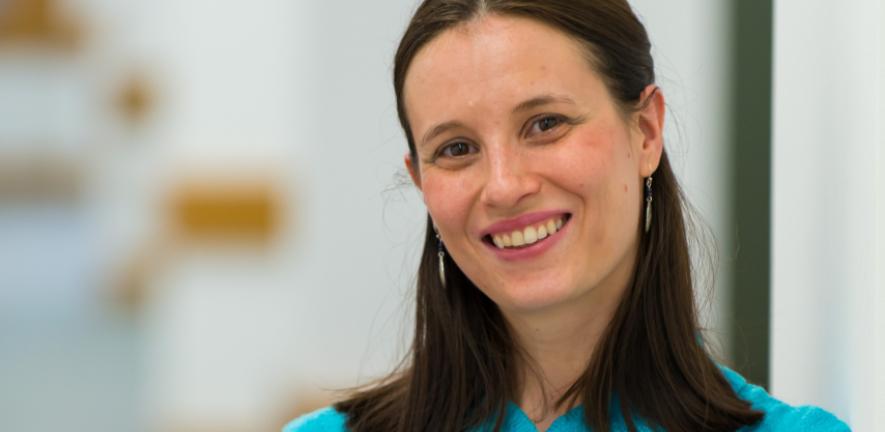
Submitted by Jane Durkin on Tue, 25/05/2021 - 14:48
Barbara McGillivray is a senior research associate at the University of Cambridge Section of Theoretical and Applied Linguistics, Turing Research Fellow at The Alan Turing Institute, and Editor in Chief of the Journal of Open Humanities Data.
Her research focuses on how words change meaning over time and how to model this change in computational ways.
She works on machine-learning models for the change in meaning of words in historical times (Ancient Greek, Latin, eighteen-century English) and in contemporary texts (Twitter, web archives).
Passionate about how the sciences and humanities can meet, her interdisciplinary contribution covers Data Science, Natural Language Processing, Historical Linguistics and other humanistic fields, to push the boundaries of what academic disciplines separately have achieved so far on this topic.
Barbara holds a PhD in Computational Linguistics from the University of Pisa as well as degrees in Mathematics and Classics from the University of Florence (Italy). Prior to her current research roles, she was a language technologist in the Dictionary division of Oxford University Press and a data scientist in the Open Research Group of Springer Nature.
Barbara will be presenting her research on Modelling semantic change from Ancient Greek to emoji at the Cambridge Language Sciences Symposium for Early-Career Researchers on 24 June 2021.
Twitter @BarbaraMcGilli
My research sets out to get computers to help us better understand the mechanisms of language change. More specifically, my current research projects look at how words changed their meaning over time in both ancient languages like ancient Greek and Latin and in contemporary English.
I spend my days in lots of meetings, nowadays remote ones, as I am involved in projects with different interdisciplinary teams: classicists, digital humanists, linguists, historians, social scientists, computer scientists and mathematicians. You may call this project management and relationship building. I also try to reserve time every week to read the most recent research and of course write articles, code, explore funding opportunities, do editorial work, teach, give talks and the occasional interview like this one!
The most interesting day I've had so far was when I found out that I had received my first funding grant, which allowed me to put together an interdisciplinary team of statisticians and classicists to work together for six months. It was a small project, but a really exciting experience. I’ve learnt a huge amount about interdisciplinary collaboration, for example the challenges of publishing results that appeal to both a humanistic and a computational audience.
I hope my research will lead to breaking down the barriers between the humanities and the sciences, showing how only by working together can we really advance our knowledge. Many people advocate for this, but it’s much harder to do than to talk about!
Cambridge is a perfect place to be doing this research because you can find so many great people coming from different disciplinary backgrounds and there are so many opportunities to attend seminars and events on any topic. I’m also affiliated with The Alan Turing Institute, UK’s national institute for data science and AI, a very vibrant and interdisciplinary place. Being embedded in both institutions has been a fantastic opportunity to meet enthusiastic collaborators and be inspired by excellent research. In Cambridge I’ve also received great support for developing my career and learning about grant funding, which is invaluable.
At the Language Sciences Symposium for Early-Career Researchers this June, I will be talking about my recent projects on semantic change modelling on ancient and contemporary languages, and how this line of research can be developed further in the future.
Read more about Barbara’s research:
